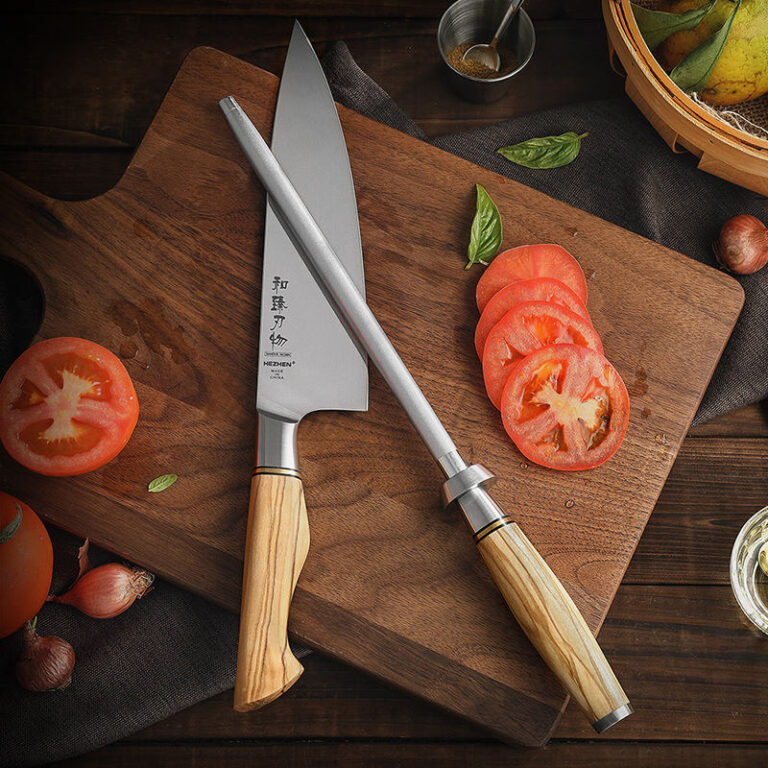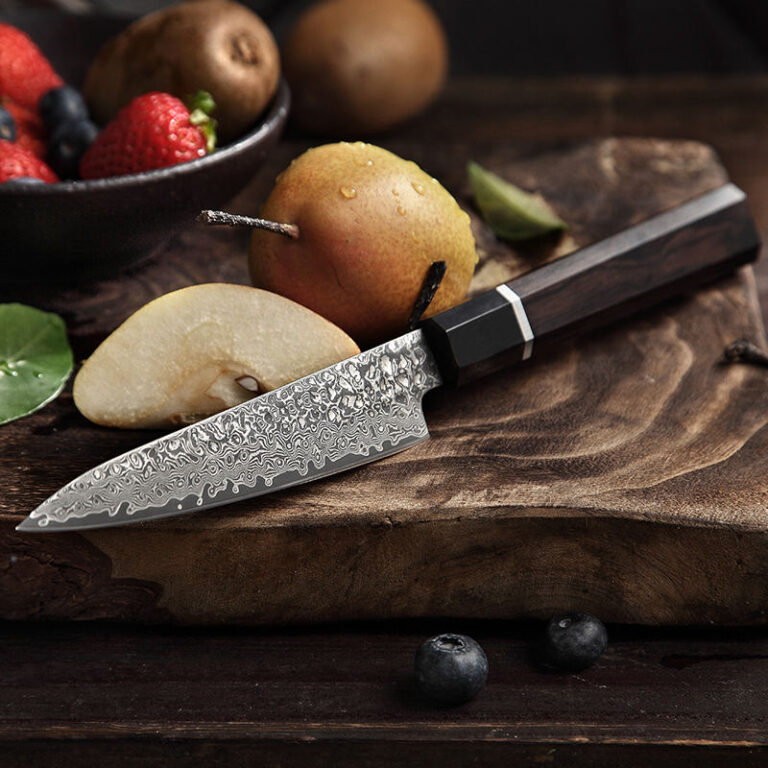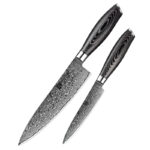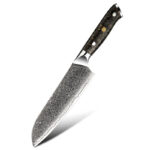- How to Care for a Damascus Steel Knife – My Guide with TuskBlade
A Damascus steel knife is more than just a tool—it’s a piece of craftsmanship that deserves proper care to maintain its beauty and performance. Whether you own a TuskBlade Damascus steel knife or another high-quality brand, regular maintenance ensures longevity and sharpness. Based on my personal experience, here’s my guide on how to properly care for a Damascus steel knife.
- Clean Immediately After Use
One of the most important habits I’ve developed is cleaning my knife right after each use. Here’s my cleaning routine:
- Hand wash only – I avoid dishwashers, as harsh detergents and prolonged exposure to moisture can damage the blade.
- Use mild soap and warm water – I gently clean the blade with a soft sponge or cloth to remove any food residue.
- Avoid abrasive materials – I never use steel wool or rough scrubbing pads that could scratch the intricate Damascus patterns.
- Dry Thoroughly to Prevent Rust
Damascus steel, especially high-carbon variants, is prone to rust if left wet. Here’s how I prevent moisture damage:
- Immediately dry with a soft towel – I make sure to wipe the blade thoroughly, paying close attention to the area near the handle where water can accumulate.
- Air drying is not enough – I always hand-dry the blade to avoid any lingering moisture spots.
- For extra precaution – If I’m storing the knife for a long time, I even use a hairdryer on a low setting to ensure complete dryness.
- Apply Oil for Protection
To keep my TuskBlade Damascus knife in top condition, I regularly apply a thin layer of protective oil:
- I use food-grade mineral oil – It’s safe and prevents oxidation.
- Apply a small amount – I use a soft cloth to spread the oil evenly across the blade.
- Wipe off excess – I let it sit for a few minutes before buffing off any excess to prevent a greasy feel.
- Store Properly to Avoid Damage
Proper storage plays a huge role in knife maintenance. Here’s what I do:
- Keep it in a dry place – I store my knife in a knife block, magnetic strip, or sheath, away from humid areas.
- Avoid loose drawers – Tossing a Damascus steel knife into a drawer can cause damage to the blade’s edge.
- Use silica gel packs – If I store my knife for an extended period, I place a silica gel packet nearby to absorb excess moisture.
- Regularly Sharpen and Hone the Blade
A well-maintained knife is a sharp knife. Here’s my sharpening routine:
- Hone with a rod frequently – I use a honing rod every few uses to realign the edge.
- Sharpen with a whetstone when needed – When the knife starts feeling dull, I use a fine-grit whetstone to restore its sharpness.
- Finish with a strop – To achieve a razor-sharp edge, I polish the blade with a leather strop.
Summary
A Damascus steel knife, like those from TuskBlade, is a valuable investment that lasts a lifetime with proper care. By cleaning, drying, oiling, storing, and sharpening it correctly, I ensure that my knife stays as beautiful and functional as the day I got it. If you follow these simple steps, your Damascus steel knife will remain in top condition for years to come!





